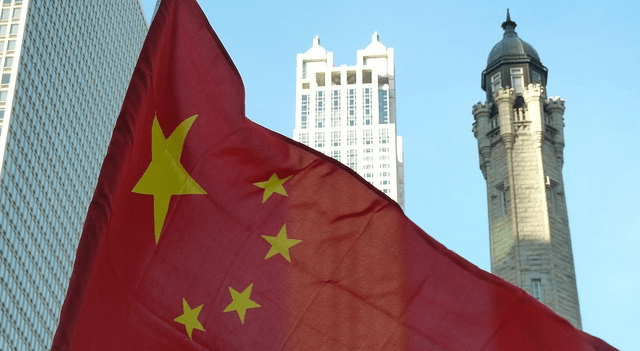China’s Non-Manufacturing Growth
China’s non-manufacturing sector grew at its fastest rate in over a decade in March, with the National Bureau of Statistics’ non-manufacturing purchasing managers’ index reaching 58.2, surpassing economists’ predictions of 54.3. However, manufacturing growth slowed, with the manufacturing sector gauge coming in at 51.9, trailing February’s 52.6 rate. The contrasting signals suggest an uneven economic recovery for the world’s second-largest economy as it emerges from the pandemic.
China’s Housing Sector Recovery
China’s housing sector showed signs of recovery as home sales rose for the second consecutive month in March, according to China Real Estate Information Corp. The value of new home sales by the 100 largest real estate developers increased 29.2% from a year earlier to CNY 660.9bn ($96.1bn). This compares with February’s 15% rise, indicating the positive impact of government policies supporting the sector.
Eurozone Inflation Falls
Eurozone inflation fell more steeply than expected in March due to a decline in energy costs, with consumer prices rising 6.9% Year-over-Year, down from 8.5% in the previous month. Although this was a sharper drop than forecasted, economists warned that an acceleration in food and services prices was likely to concern the region’s rate-setters.
UK House Prices Decline
UK house prices fell by 3.1% Year-over-Year in March, the biggest decline since July 2009, due to high inflation and rising borrowing costs. The average house price has dropped to £257,000 from a peak of about £274,000 in August. The data from mortgage provider Nationwide showed a larger fall than the 2.2% forecast by economists polled by Reuters.
European Savers Shift Money
European savers are shifting their money from accounts with low or no interest to those that offer higher interest rates, which could hurt lenders’ income. Bank clients withdrew sight deposits in February at the fastest rate since 2003, while accounts with fixed maturities received the biggest inflows in more than a decade. European banks offer next to no interest on sight deposits, while it can be as much as 2% for term deposits.
US Consumer Data Release
The US Commerce Department is set to release household spending, income, and saving figures for February, alongside the Federal Reserve’s preferred inflation gauge. The data will reflect the impact of high inflation on consumer purchasing power and high interest rates, but not the impact of banking industry turmoil, which emerged in March.
China’s Government Criticizes Digital Finance
A deputy governor at the People’s Bank of China, Xuan Changneng, called for stronger regulation of digital finance, citing recent banking failures linked to US lenders involved in cryptocurrency transactions. He stated that “regulators should respect rules when innovating regulation”.
African Central Banks Raise Interest Rates
Central banks in Ghana, Kenya, and South Africa surprised financial markets by raising interest rates more than predicted in an attempt to control inflation. In Ghana, inflation is well above the target band of 6-10% and is only expected to ease to 29% by year-end. In Kenya, inflation remains above target and is predicted to stay elevated in the near term. South Africa raised its forecast for average inflation this year to 6% from 5.4% and warned of upside risks to the outlook.
UAE Cancels License of Russian Bank
The UAE has cancelled the licence of Russia’s MTS Bank and ordered it to wind down its operations in the Gulf state, citing “sanctions risks” associated with the lender. The decision comes amid concerns that the UAE is becoming a haven for Russian sanction-busting, and as the US exerts pressure on the region’s dominant trade and financial hub.
UK Faces Legal Challenge on Trade Deal
Campaign group Global Feedback has initiated legal action against the UK government for its free trade deal with Australia, arguing that it contravenes the country’s climate obligations. The group has taken the first step towards seeking a judicial review and claims that the government failed to conduct proper due diligence on the environmental impact of Australian agricultural imports such as beef and dairy. This move is the latest in a series of legal actions taken against the government on environmental grounds, including a successful case that led to the rewrite of the Department for Business, Energy and Industrial Strategy’s net zero strategy.
Heathrow Passengers Face Strike Disruption
Over the Easter holiday, passengers departing from London’s Heathrow airport may experience disruption due to a strike by more than 1,400 members of the Unite union. The industrial action began on Friday after the last-ditch talks to find a solution for a pay disagreement fell through. The strike will continue until April 9, which is one of the busiest travel periods of the year, and follows a series of walkouts by Border Force officials at immigration, as well as a five-week strike by UK Passport Office officials.
Reserve Bank of Australia’s Expected Pause
The Reserve Bank of Australia is expected to keep borrowing costs at the same level at its next meeting, marking its first pause since initiating a policy tightening cycle in May 2022. Bloomberg surveyed 27 economists, 16 of which expect the bank to stand pat at 3.6% on Tuesday. The RBA has carried out 10 consecutive hikes in the period between May and March, with a total increase of 3.5 percentage points, marking the bank’s most aggressive tightening cycle since 1989. Policymakers will have to decide between combating inflation and the fact that consumer prices may have already peaked, with indications that the economy is beginning to slow.
